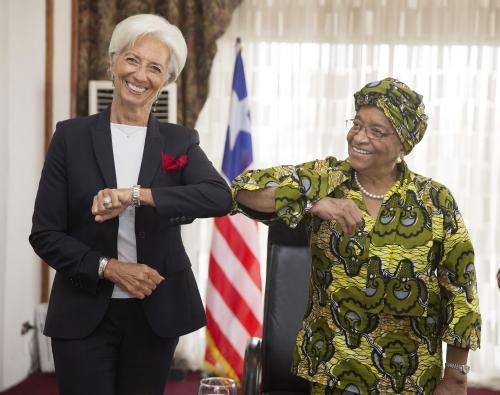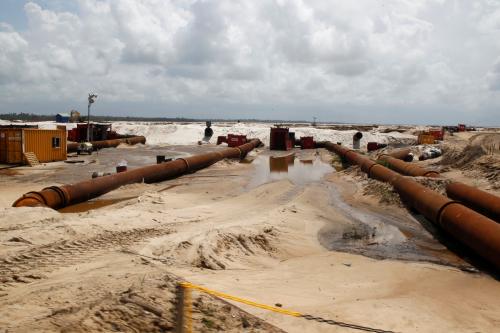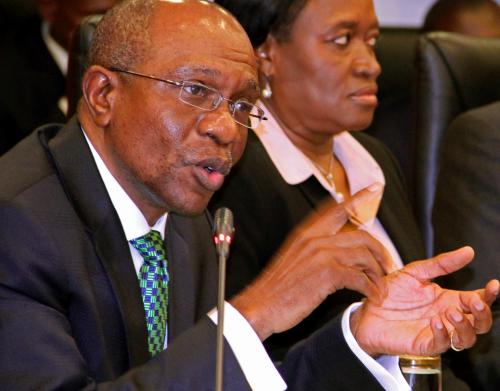Nigeria bans lenders from SME forex market
On Tuesday, the Nigerian Central Bank barred 15 Nigerian lenders from accessing the recently created small and medium enterprises (SMEs) foreign exchange market amid claims that the lenders were hoarding foreign currencies instead of selling the allocations to SMEs. In April, the Nigerian Central Bank opened up a new foreign exchange window, with the exclusive purpose of selling foreign currencies to SMEs, while said companies allegedly were being crowded out of forex markets by large firms. The sale of U.S. dollars to SMEs would happen through one of Nigeria’s 24 banks, who would acquire the foreign currency, before, in turn, selling it to Nigerian SMEs. Through this new forex window, the Central Bank of Nigeria aims to offer each SME up to $20,000 per quarter.
As Nigerian companies rely on foreign currencies like U.S. dollars to finance their imports of eligible finished and semi-finished products, the deprivation of foreign currencies by lenders can affect the operations of small and medium enterprises. The central bank states that the ban will be lifted upon lenders providing proof of foreign exchange currency sales to SMEs.
In other forex news, Nigeria is considering lifting a ban that prohibits companies that import certain products, such as toothpicks and rice, from purchasing foreign currency on the Nigeria’s interbank market. The policy, in place to promote local manufacturing and conserve foreign currency, would be the latest easing of Nigeria’s foreign exchange trading restrictions. Last June, the Central Bank removed the naira peg.
Tanzanian President Magufuli fires nearly 10,000 civil servants over false credentials
In Tanzania, a government investigation into fraudulent qualifications of civil servants recently yielded a report accusing 9,932 government workers—more than 2 percent of the total civil servant workforce—of having falsified their credentials. Consequently, President John Magufuli announced last Friday that the workers identified must resign by May 15 or face prosecution, which could lead to sentences of up to seven years in prison for those individuals found guilty. Furthermore, he called on newspapers to publish the names of the workers identified in the report in order to shame them, asserting that, “These people occupied government positions but had no qualifications… they robbed us just like other common criminals.” Magufuli has maintained a strong anti-corruption image since assuming office in November 2015, notably removing 10,000 “ghost workers” from the public sector payroll in May 2016, which were estimated to have cost the government $2 million a month. Following last week’s dismissals, the Permanent Secretary of the President’s Office Laurian Ndumbaro stated that the government is seeking to employ 15,000 new workers by June to offset the current shortage of personnel and help ease public concerns that the massive sacking could lead to disruptions in service delivery.
The 2017 World Economic Forum on Africa
This week, from Wednesday, May 3, to Friday, May 5, the 2017 World Economic Forum on Africa (WEF Africa) was held in Durban, South Africa. This year’s theme is “Achieving Inclusive Growth.” The opening plenary debated the top priorities facing Africa. The Fourth Industrial Revolution was a major theme of the discussions, with WEF and the South African government announcing South Africa Internet for All, which aims to use public-private partnerships to bring internet to rural areas, and special sessions with “Africa’s Breakthrough Female Tech Entrepreneurs” on action plans for generating employment. Skills building, governance and accountability, electricity access, poverty alleviation, and especially trade and regional integration were among the many topics discussed.
On Thursday, WEF Africa released the Africa Competitiveness Report 2017, which examines “the factors, institutions, and policies that determine a country’s level of productivity” in African countries. The report notes that, while the continent’s overall scores have improved little since 2008—due largely to weak financial sector development, low levels of regional trade, infrastructure deficits, and significant skill mismatches, among others—specific areas—such as human development (especially literacy) and macroeconomic policy—have greatly improved. The report especially focuses on jobs under the looming demographic tidal wave, improved cities, and faster policy implementation.







Commentary
Africa in the news: Nigeria’s forex market, Tanzania’s falsely credentialed civil servants, and WEF Africa news
May 5, 2017